Check out some books by your tutor Fiona Veitch Smith … (click on the book covers to find out more)
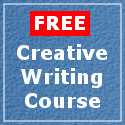 Hello everyone, welcome to the first session of our free online creative writing course. Over the next eight sessions we will be looking at different aspects of creative writing and trying our hand at various forms. I’d strongly encourage you to have a go at the exercises along the way, and please feel free to leave comments or ask questions at the end. If you have arrived on this page without first reading the home page and frequently asked questions page (on tab above) please go back and do so now. If you have read them, enjoy the course!
Hello everyone, welcome to the first session of our free online creative writing course. Over the next eight sessions we will be looking at different aspects of creative writing and trying our hand at various forms. I’d strongly encourage you to have a go at the exercises along the way, and please feel free to leave comments or ask questions at the end. If you have arrived on this page without first reading the home page and frequently asked questions page (on tab above) please go back and do so now. If you have read them, enjoy the course!
Creativity and Art
What is creativity? The Collins dictionary defines it as ‘the ability to cause something to exist’. Without getting into too much of an existential discussion, I would say that with every thought that is expressed, something has been created. It was Descartes who said: ‘I think, therefore I am’; well I would add, ‘I think, therefore I create’ (do you feel a God complex coming on?). But how do we express our thoughts? Sometimes we do it verbally, other times by body language and still again through what is loosely termed ‘art’.
Art takes place when a thought is expressed and fixed in a way that other people may experience it on an aesthetic level – through music, writing, painting, sculpture, choreography and so on. Many artists say that their best work takes place when they ‘by-pass’ the thought and simply express the feeling. This may be true, but for writers, who use a verbal medium, a feeling must first be converted into a thought before it can be put into words. Don’t over analyse the thought before you express it, as this way you can ‘channel’ the purest interpretation of the feeling, but some cognitive process needs to take place. Some writers prefer to mull over a thought and give it form before they put pen to paper – I’m one of them – but it’s good practice to try and switch off the ‘editor’ at least for the first draft. First response trigger exercises are useful in this regard and can release some unexpected words and images.
Exercise 1:
Write down your first response to these words or phrases:
- Blue ball
- And that’s when the sadness came
- Coffee
The first task of a good writer is to convert feelings into thoughts and then into words. This is the raw material that can then be converted into something more permanent. Some writers refuse to toy with their first drafts, believing their creativity will be diluted; I disagree. Allowing your critical mind to improve a piece of writing is where the craftsman meets the artist. Something produced only by the former will lack soul and something by the latter will lack form. Good writing is a combination of art and craft.
For public consumption
Art, of course, is highly subjective and one woman’s masterpiece is another woman’s unmade bed. We all have the ability to create, but whether or not our creation is ‘art’ must be left to the eye or ear of the beholder.
In this session we will look at how you can craft those creative thoughts into creative writing to share with other people. And that’s what sets ‘public’ writing apart from ‘private’ scribblings – there’s a perceived readership in mind. When I ramble on in my journal, I am the only one who will read it (hopefully!) so my only concern is getting my thoughts down on paper. The moment I want someone else to read it I begin to consider ways to improve the presentation and craft it into something more aesthetically pleasing. I consider which words may sound more colourful, whether or not my sentence structure is grammatically correct, whether I’m using evocative imagery, and so on.
Story, feeling or image?
What is it about those creative thoughts that you think might be of interest to other people? Do they speak of an eternal truth or a common experience? Do they make you laugh or cry? Do they suggest a story that will entertain or a poem that captures a moment that must be shared?
Exercise 2: In 50 words or less write down why you want to write then list three creative thoughts that you’ve had lately (each 10 words or less). These may be an image, a musing, a ‘truth’, a story, or so on. If you haven’t had any, take yourself for a walk and look around; what grabs your imagination? Browse through a newspaper or a magazine; do any stories or pictures catch your attention? Think back over your day; did anything funny, charming, shocking or unusual happen to you or someone you know?
Poetry or prose?
Some people are more suited to writing poetry than prose and some people do well at both. Although we won’t be discussing it in this course, other people are more suited to script. I’m one of them. I’ve had relative success as a prose writer and in fact have managed to earn a living from it, but it’s taken years of hard work to get to this point. I recently branched out into scriptwriting and found that I had much more of a natural ability. (If you’re interested in finding out more about scriptwriting, check out getting started in playwrighting). You may find that you’ve been trying to make it as a poet when actually you’re more suited to prose. Now I don’t want to pigeonhole anyone, but ask yourself the following questions:
- Are you more attracted to films than stills?
- Do you enjoy telling people ‘stories’ from your life?
- Do you prefer to read stories or poems?
If yes, to these, then you may be more suited to prose than poetry. If no, then the opposite may be true. If it’s ‘sometimes yes, sometimes no’ then perhaps you are suited to both. We shall be looking at how to write poems in more detail in session 7, but suffice to say, a poem is like a snapshot of a moment. If you can’t rest until you know what happened before and after, then prose may be your genre.
Exercise 3: Take one of the three creative thoughts you wrote down in Exercise 2, then list 20 separate words that communicate or describe that thought. Do not, at this stage, link the words into sentences. Once you have your 20 words use them in a poem of 16 lines or less. Then, take the same 20 words and work them into a short story of under 300 words. Which exercise came more easily? Which form has best communicated your creative thought?
Further Resources:
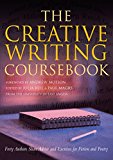
There are some excellent resources out there for creative writers. To get quick ‘starter’ images when your own well is dry I recommend The Writer’s Block by Jason Rekulak. I’m currently working through The Creative Writing Coursebook by Julia Bell and Paul Magrs and finding it very useful.
The next creative writing course session is how to write a short story. But before you move on to that, please feel free to leave a comment or ask a question in the box below.
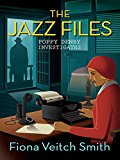
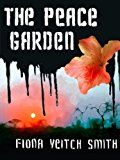
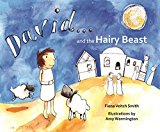
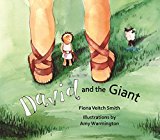
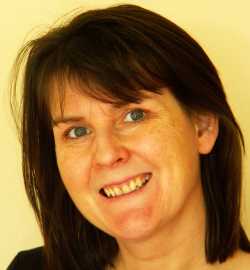 Welcome to The Crafty Writer's free online creative writing course, presented by Fiona Veitch Smith, a freelance journalist, editor, author, playwright, screenwriter and writing teacher. I hope that you'll see a dramatic improvement in the quality of your writing as you work through this course.
Welcome to The Crafty Writer's free online creative writing course, presented by Fiona Veitch Smith, a freelance journalist, editor, author, playwright, screenwriter and writing teacher. I hope that you'll see a dramatic improvement in the quality of your writing as you work through this course.
Thank you very kindly for putting this together. Only finished the first section, but it’s lovely so far. SWEET!!
Prose or Poetry ?
it appears that mostly
it be poetry
but not totally
for prose, notably
also holds literary potency
so now I sit woefully, openly,
somewhat confused …….
Hi,I am trying my best to write something to be a creative writer. I believe that one day my dream as a writer will come true, but it is long way to go. I need to be a patient when it comes to read in order to write or to sit and think to write.
Thanks for your help.
Abdi
You’re welcome Abdi.
Hello, can I take as much time as needed to complete the course? Thank you Talyn
Absolutely, Talyn. You can do as much or as little of it as you like. And completely in your own time.
Hi I have to say I am impressed by this course so far. Your reasoning and logic on this subject so far makes sense an the exercises are so challenging.I couldn’t even finish last exercise cause I have too many ideas for my future novel.keep up the good work girl!
Love it so far!! Taking a few university free writing courses
Next month..so this keeping me motivated till then..thanks ????
Love it so far!! Wish we could post what we created..then get some fred back..?! Thanks !!
Good morning, Fiona! I am trying to become a writer and your ideas in this coursebook is helping me a lot. Thanks,
Charles ferreira
You’re welcome Charles. Happy writing.
Thank you for this course and the resources you’re sharing. I am very new at creative writing and am finding this first lesson very informative. I couldn’t even begin to write a poem! I had no clue where to even begin. I was able to write the story although it was more like a narrative of my experiences than a story. I look forward to continuing the course.
I am already great at story writing because my english teacher was on about entering me in national competitons. At the end of this course would I be able to improve them more if I did all these lessons correctly?
Abigail, all writers benefit from practise. Whether you improve or not will depend on how much you work. I think the first step is to realise that you can always get better. I won story competitions when I was a child but if I had stopped working on my writing I would not be a published writer now. And if I stop working on my writing now I will not become a better writer – which I hope to be. So yes, the course will benefit you.
I was quite chuffed with myself. Thank you for the insight. Very usefull.
You’re welcome, Alexandra.
I accidently stumbled across this sight, and the timing was great. I have writing since I could put pen to paper-around my work schedule and childrearing. In the last year, my children have all moved on, and my work schedule has lightened significantly. Ideal time for writing it would seem. Complete writers block. I am exploring your site to re find that inspiration. Already see the promise in the exercises.
Thank you.
Glad to hear it Miri. And may the block disappear completely!
Good evening,
Hello, I am really interested in taking your creative writing class. I have always wanted to be a writer but lacking in the basics of how to get started. I feel your program will really help me achieve my goals. Thank you.
You’re welcome Clara, enjoy!
Hi there,
I’m very new to writing but read a lot, mostly non-fiction. Lately, I’ve been reading short stories (Raymond Carver & Karen Russell). Reading these two, very different styles prompted me to do some research on creative writing and that’s when I found your site.
Quick question on the first set of exercises:
What constitutes a “creative thought”? Does it need to be a a premise or plot for lack of a better term? My 3 thoughts were somewhat abstract (i.e. “Is there such a thing as a balanced life?”)
I found it slightly difficult to build off of these as opposed to something more tangible and was left wondering if I got off on the wrong foot.
Hello Cody,
A creative thought is really anything that gets the creative juices flowing and makes you want to write / draw / paint something in response. It can be as little as ‘cracked autumn leaves’ or as fleshed out as ‘an old man is set upon by thieves but they get more than they bargained for’. I didn’t want to use a word as concrete as ‘premise’ or ‘plot’ – firstly, because that assumes a narrative of some kind and these opening exercises are for poets and prose writers alike – but also because for some beginners they haven’t made the step yet from a thought or impulse to a premise or plot. However, if your first thought was actually a fleshed out premise, go for it! There is no right or wrong. If you feel you have got off on the wrong foot then go back and start again. You can do this as many times as you like. Remember, this is just to get the juices flowing. We will be building these thoughts into something more substantial later in the course.
Good luck
Fiona
Hello. I’m just a beginner at writing but i do love to actually write the stories i have in mind but i have a little problem, i rarely do write them because i dont have that ‘click’ in which inspiration comes to play in my mind, I’d love to learn more in this site while i am trying to find out what suitable Writing course i will enter in college. Also, I have got the idea that your exercises are mending the thoughts to write a story, in which have helped me more than i expected, if you can, may we please talk?, I want to learn more in this course, that’s all.
Hello Nichole,
If you would like a consultation to discuss your writing further then we can set up a time to have a ‘live’ email correspondence. Sorry, but my Skype is currently not working – and I don’t give out my phone number. If you would like to discuss a time then please send me a message through the ‘contact’ page and we can exchange emails and agree a mutual date / time. I’m sure though you’ve read the info on the course and realise that what’s on the website is all for free but if you would like further input you will have to pay for it. For consultancy I will charge £25 per half hour, payable in advance via Pay Pal.
Kind regards,
Fiona Veitch Smith
I just did the first 3 exercises and boy.. I am so impressed by the product. I wasn’t sure where it was going but it was so challenging and rewarding to work on the third exercise. I enjoyed both Prose and Poetry but suprisingly… the latter was easier for me!
I’ve found this a good way to get started. I feel I have one specific book in me – a work of fiction heavily based on fact which I want to write but I need to learn the process.
I don’t know what you consider to be poetry is you meant in the traditional sense (the type of poetry you learn about in school and Shakespeare). I sort of combined the two. The short story and the poetry. I made my exercise an abstract poetic, short story. I’m really liking this course as already, it allowed me to think outside of the box with my current stories. Gave me new perspectives and things to consider.
Glad it’s been of some help, Alia.
Hi, just wanted to let you know this first class was just what I needed to realize that I can do this! I love the technique and am continuing to use it everyday. Thank you so much, looking forward to the classes to come
You’re welcome, Jackie
I really enjoyed this first session, I found both the Poem and story came easy for me.
Looking forward to the next session.